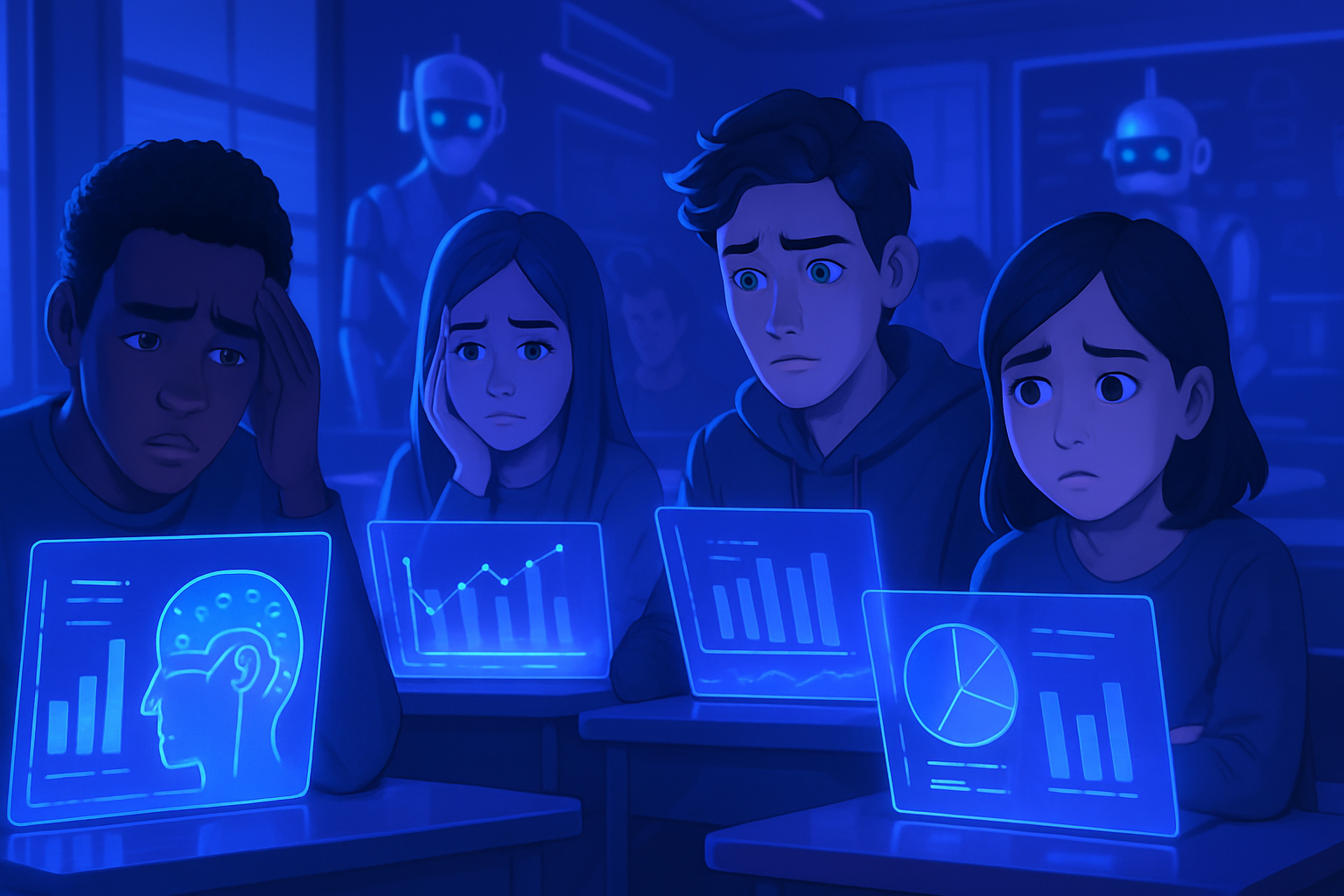The use of artificial intelligence by students raises serious concerns about their academic development. A recent survey reveals persistent fears among young people, who see this technology as a threat to their creativity. Enlightening results highlight essential issues, particularly the challenge of authentic learning versus the ease provided by AI.
Students’ fears about artificial intelligence
A recent survey reveals that students are concerned about the impact of artificial intelligence on their study skills. According to this study commissioned by Oxford University Press, a majority of students aged 13 to 18 regularly use AI tools for their homework. Indeed, 80% of the surveyed students report using these technologies in their schoolwork.
Negative perceptions of AI tools
A clear concern emerges from students’ responses. About 62% of them perceive the use of AI as having a negative impact on their development and academic skills. A significant portion, one in four students, acknowledges that AI makes accessing answers too easy, thereby discouraging them from putting in the necessary effort.
On creativity and problem-solving
The participants also express reservations about the effect of AI on their creativity. Nearly 12% of students claim that using AI limits their ability to think originally. Other observed concerns include a decline in problem-solving skills and creative writing. These perceptions raise questions about the long-term implications of AI in education.
Understanding the use of technologies
Alexandra Tomescu, a specialist in generative AI, emphasizes the maturity of students in their opinions. About 60% of students believe that AI tools encourage copying rather than creating original work. This observation demonstrates students’ acute awareness of the purpose of their education and the dangers associated with the use of these technologies.
Students’ concerns and the role of teachers
A revealing finding: nearly half of the 2000 students surveyed express fears that their peers use AI secretly to cheat, often without teachers’ knowledge. Many desire better guidance from teachers regarding the appropriate use of AI. This demand highlights the need for support in discerning the reliability of the results provided by these tools.
Teachers’ reactions
Daniel Williams, the deputy head of a school in Birmingham, confirms that the survey results align with his practical observations. Students recognize the value of AI for creativity, revision, and problem-solving, but tend to use it as a shortcut rather than as a true learning tool. This phenomenon is particularly significant, as only 31% of students feel that AI does not negatively affect their skills.
The benefits of AI in learning
Although fears predominate, some students notice an enhancement of their skills due to AI. About 18% state that these tools help them better understand problems, while 15% feel they contribute to generating new and richer ideas. A testimonial from a 15-year-old student mentions that AI helps her better grasp mathematical concepts and solve more complex questions.
The impact on thinking speed
A 14-year-old student shares his experience, indicating that AI provides him with increased thinking speed. This testimonial highlights an interesting aspect of AI tools that could be exploited to enhance learning while raising questions about traditional teaching methods. These words reflect a duality in the appreciation of technological advancements in the educational field.
Common questions about the impact of artificial intelligence on students’ study skills
Do students really think that artificial intelligence harms their learning?
Yes, according to a study, 62% of students believe that the use of artificial intelligence has a negative impact on their skills and academic development.
What are the reasons students fear the use of artificial intelligence?
Students mention that it helps them find answers easily, which could lead them to avoid making the necessary effort to learn on their own.
How can artificial intelligence limit students’ creativity?
Some students claim that AI restricts their creative thinking, leading to a dependence on solutions provided by technology rather than their own reflection.
What is the perception of teachers regarding the use of AI by students?
Teachers realize that students expect to receive guidance on the use of AI, indicating that they seek to better understand how to integrate it productively into their learning.
What skills do students believe they develop through the use of artificial intelligence?
Despite concerns, many students assert that AI helps them explore new ideas, better understand certain problems, and improve their problem-solving skills.
What advice do students give for the appropriate use of artificial intelligence in their learning?
Students desire more support from their teachers to assess the reliability of the answers provided by AI and to learn how to use it effectively.
Do students feel competitive because of their peers’ hidden use of AI?
Yes, almost half of the students are concerned that their peers use AI secretly to carry out schoolwork, making it difficult to distinguish between personal effort and technological assistance.






